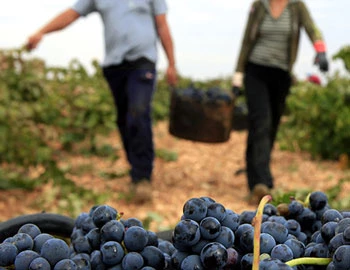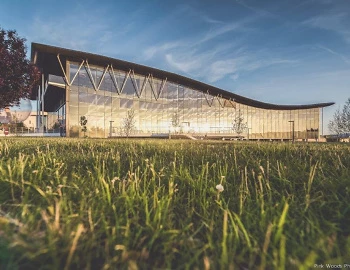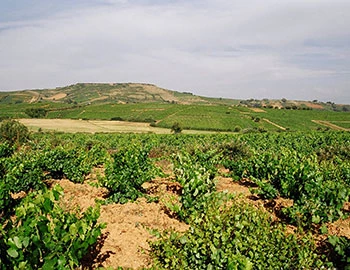Rusden Wines / Christine & Dennis Canute
RUSDEN WINES - At home in the New World, stylistically entirely in the Old World
In 1979 Christine and Dennis Canute bought 40 hectares of run-down vineyards on white sand and clay soil in the heart of the Barossa Valley. The original plan was to run the winery as a hobby alongside family and work.
Dennis continued to work as a teacher to provide Christine with the means to gradually rejuvenate the old vineyard. At that time, the Canute family sold the grapes to local wineries. However, due to the low demand for red wine grapes, prices were very low. In 1992 Dennis decided to vinify a barrel of Cabernet Sauvignon himself, together with his friend Russell. The name "Rusden" (a creation from the two first names Russell and Dennis) was born. In 1994, they drank their first own wine with pleasure and decided to deepen this "hobby". In 1997 they bought five used barriques and began experimenting with Shiraz, Grenache and Cabernet Sauvignon. Christine and Dennis' son Christian, who was working at ‘Rockford Wines’ at the time, then took on a key role in the company.
Red wines from Rusden Wines / Christine & Dennis Canute
from Rusden Wines / Christine & Dennis Canute
In 1998, after their first experiences at the winery, all of them had regained enough motivation to reinvest themselves in the vineyards. At the time, everything was still being processed in a fully mechanised manner. The laborious but incredibly rewarding process of abandoning the mechanized routines applied to the vines began with the Shiraz vines planted in 1969. The old vines were slowly trimmed, block by block. Gradually, the quantity of bottles produced by Rusden increased, but more importantly, the meticulous care taken in the vineyard resulted in a marked improvement in the quality of the wine itself. In 1998, the volume of grapes processed was 7.5 tons. In 1999, it was already 10 tons, including Shiraz, Chenin Blanc, Zinfandel (from the oldest Zinfandel vines in Australia) and Mataro (synonymous with Monastrell or Mourvèdre). Today, between 80 and 100 tonnes of grapes are harvested each year for Rusden wines - all hand-picked from our own vineyards.
As with all family businesses, the time to hand over to the next generation also came at Rusden. After a gradual transfer, Christian and Amy took over the management of the estate in 2017.
The Barossa Valley lies about 70 kilometres north-east of Adelaide in South Australia. It is the continent's most famous wine region, with a total vineyard area of approximately 10,000 hectares.
Rusden Wines' vineyards are located in the eastern part of the Barossa Valley, in the Vine Vale region, where the soils consist of deep white sand on red clay. These terroirs give the wines their unique character. Although the Rusden wines come from the New World, their style is more in line with that of the Old World: the wines are fruity, elegant, typical and well-balanced.
Producer

Bodegas Campos Reales
The landscape of Meseta Central stretches out endlessly to include La Mancha, the land of Don Quixote and Sancho Panza, and also Spain's largest wine region.

Nicolas Feuillatte
Nicolas Feuillatte, a visionary and gifted entrepreneur, presented his Champagne for the first time in 1976. It quickly became the trendy brand in jet-setter circles in the USA, Australia and England, circles which Nicolas Feuillatte regularly frequented. In just 30 years, Nicolas Feuillatte rose to become the No. 1 Champagne brand in France.

Castro Ventosa / Fam. Pérez Pereira
Castro Ventosa - a bodega in the heart of the Bierzo vineyards. The DO Bierzo, in northwestern Spain, covers about 3500 hectares of vineyards, 70 % of which are between 40 to over 100 years old. On limestone soils interspersed with sand, the indigenous grape variety Mencía feels particularly at home here




